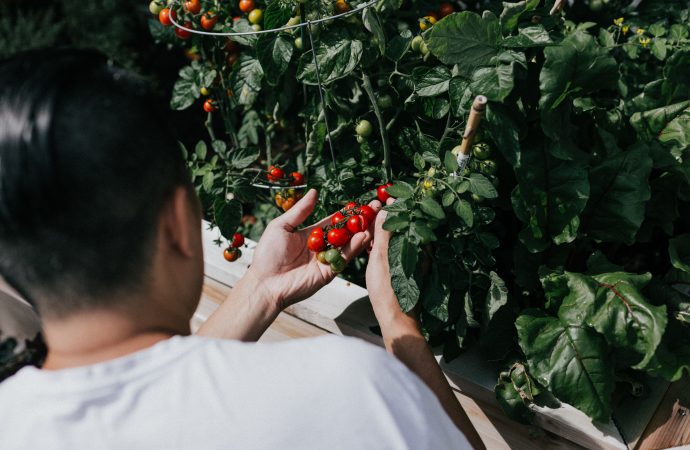Introduction: We all know the importance of a balanced diet for our furry friends, and incorporating fruits and vegetables into their meals can provide essential vitamins, minerals, and fiber. However, it’s crucial to understand which fruits and veggies are safe and beneficial for dogs and which ones should be avoided. In this article, we will
Introduction:
We all know the importance of a balanced diet for our furry friends, and incorporating fruits and vegetables into their meals can provide essential vitamins, minerals, and fiber. However, it’s crucial to understand which fruits and veggies are safe and beneficial for dogs and which ones should be avoided. In this article, we will explore the world of canine nutrition and guide you through the do’s and don’ts of feeding fresh produce to your beloved dog.
The Benefits of Fresh Produce:
Integrating fruits and vegetables into your dog’s diet can offer numerous health benefits. Just like humans, dogs can benefit from the vitamins, antioxidants, and fiber found in these natural foods. Fruits and vegetables can support your dog’s immune system, improve digestion, promote healthy skin and coat, and even help prevent certain diseases. However, it’s important to make informed choices and ensure that the fruits and veggies you feed your dog are safe and suitable for their specific dietary needs.
Safe Fruits for Dogs:
1. Apples: Apples are a great source of vitamins A and C, as well as fiber. Make sure to remove the seeds and core before offering small, bite-sized apple slices to your dog.
2. Blueberries: Packed with antioxidants, blueberries are a delicious and nutritious treat for dogs. They can be fed fresh or frozen, and they provide a boost of vitamins and minerals.
3. Watermelon: Watermelon is a hydrating fruit that dogs can enjoy in moderation. It’s a great source of vitamins A and C and can be a refreshing snack on a hot day. Remember to remove the seeds and rind before offering it to your dog.
4. Bananas: Bananas are rich in potassium and can be a healthy and energizing treat for dogs. They are also easy to digest, making them a great option for dogs with sensitive stomachs.
Unsafe Fruits and Vegetables:
1. Grapes and Raisins: Grapes and raisins can be toxic to dogs and should be avoided altogether. They can cause kidney failure and other serious health issues.
2. Onions and Garlic: Onions and garlic, whether raw, cooked, or in powdered form, contain compounds that can damage a dog’s red blood cells. It’s best to keep these ingredients away from your furry friend.
3. Avocados: Avocados contain a substance called persin, which can be toxic to dogs in large quantities. The flesh of the avocado is generally safe, but it’s best to avoid feeding them the skin, pit, or guacamole.
4. Mushrooms: Some species of mushrooms can be toxic to dogs and may cause various symptoms, including digestive upset, seizures, or even organ failure. To be safe, it’s best to avoid feeding mushrooms to your dog unless they are specifically approved as safe by a veterinarian.
Consulting with Your Veterinarian:
While many fruits and vegetables are safe for dogs, it’s essential to consult with your veterinarian before introducing new foods into your dog’s diet. Some dogs may have specific dietary restrictions or health conditions that require a tailored approach. Additionally, certain breeds or individual dogs may have allergies or sensitivities to certain fruits and veggies. Your veterinarian can provide you with personalized advice and guidance based on your dog’s unique needs.
In Conclusion:
Incorporating fruits and vegetables into your dog’s diet can be a healthy and enjoyable experience for both you and your furry friend. By understanding the safe options and avoiding potentially harmful foods, you can
provide your dog with the nutrition they need to thrive. Remember to introduce new foods gradually, monitor your dog’s reactions, and always consult with your veterinarian for professional advice. With proper knowledge and care, you can treat your dog to a variety of fruits and veggies that contribute to their overall well-being.

















Leave a Comment
Your email address will not be published. Required fields are marked with *